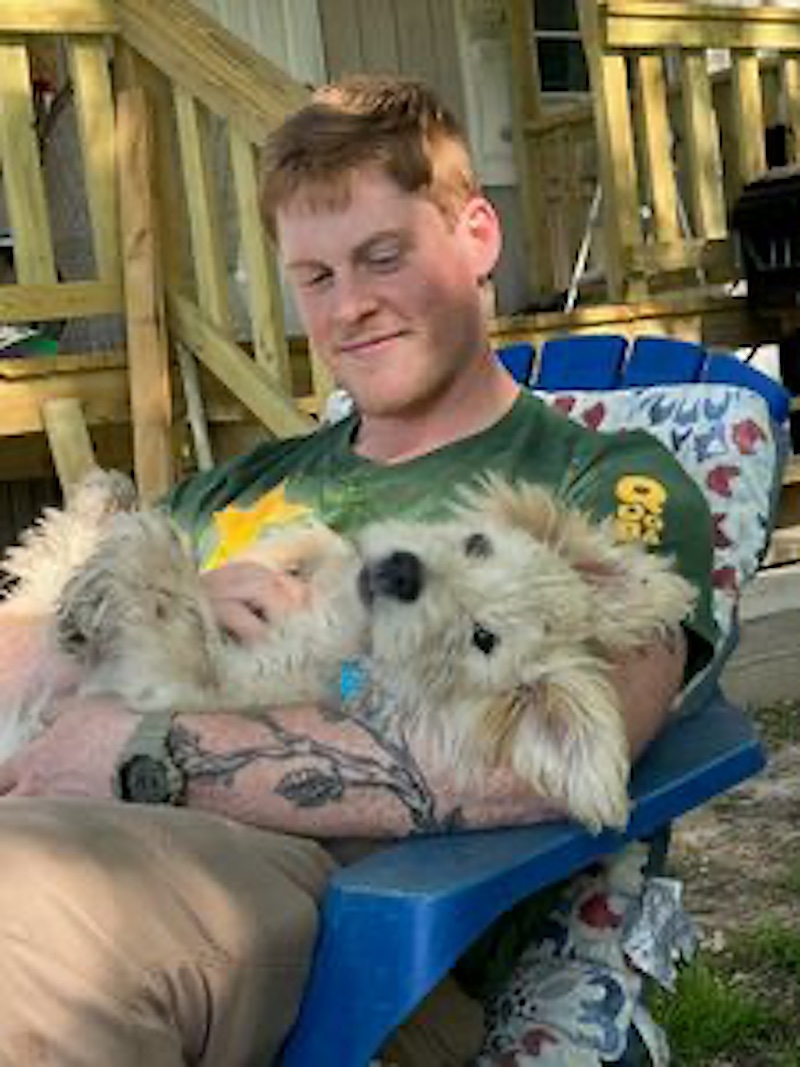An Andrews Story:
One Conversation Saved Me

Content warning: Mentions of suicidal thoughts and substance use.
When I was in high school, dance wasn’t just a hobby — it was everything. I worked at it, won scholarships, and went to college as a Dance major. It felt like the future I’d earned: my dream, my identity. Then, in my first year, I started getting this horrible pain in my hips that shot up my back and down my legs. I tried to push through like dancers do, but it got worse. Soon I couldn’t walk up a single flight of stairs without turning myself sideways. A doctor told me I had hip dysplasia (that diagnosis later proved wrong), but whatever the name, the result was the same: my body wouldn’t let me dance anymore.
Losing dance meant losing the scholarship, the free ride, my friends, and the version of myself I’d built my life around. I’d dealt with moderate depression in middle school after my parents’ divorce, but this was darker. I went from being a motivated, social kid to an isolated hermit locked in my dorm room — angry, ashamed, and full of hopelessness. My family didn’t have money for private counseling; there was no safety net of paid care. I started using drugs to chase brief moments of joy, anything to get away from the pain.
Months later I found myself on the top of the Performing Arts parking garage. It was only three-and-a-half stories high, but I figured if I went down headfirst it would be quick. I thought about my family — and I knew they wouldn’t stop me. I knew, too, that I wasn’t ready…yet. I talked with the friends I had left and a couple of family members about what was going on, but they weren’t equipped to help me from my depths. I needed other answers.
Because my family couldn’t afford care, I reached out to the school’s free counseling program. For the first time I sat across from someone and said the words aloud — that I’d thought about not wanting to live, that I’d been on that roof. I started psychiatric medication. My counselor didn’t tell me I was weak. Instead, they saw a young person who’d been deeply wounded by loss and change, someone whose new reality had built beliefs that would never lead anywhere good. They helped me unravel those beliefs, gave me tools to tolerate grief and uncertainty, and, crucially, listened without judgment.
Now I’m an intensive case manager, in graduate school for Clinical Mental Health Counseling, and take pride in where I came from. I used to be deeply ashamed of this story, but now – working with so many people who have similar thoughts and feelings – I feel proud of myself and how far I’ve come. It’s amazing how far one relationship, one person, one conversation even, can change your future. I’m lucky enough to have had several. Now, more than anything in the world, I aspire to be that person, that relationship, or that conversation that I needed so desperately on top of that parking garage. I may never know if I’ve succeeded, but I am positive that trying is worth whatever it costs.
Wesley Thomas
If you or someone you know is in crisis, you are not alone. Call or text 988 to reach the Suicide & Crisis Lifeline in the United States, or contact the 24/7 crisis line at Andrews at 877.934.2131. If immediate danger is present, call 911.